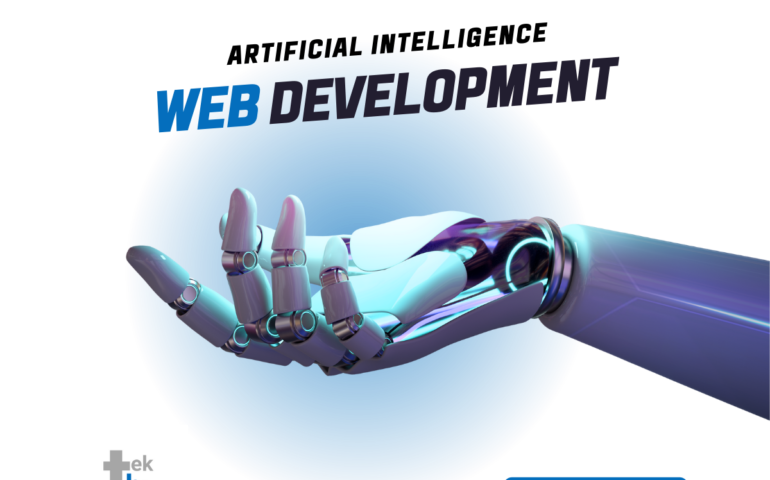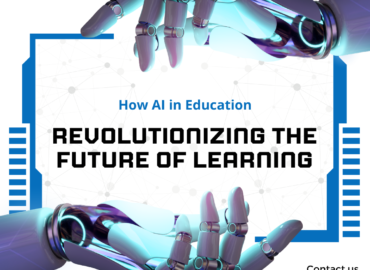AI Software Development: Building Intelligent Solutions for a Smarter Tomorrow
AI Software Development: Building Intelligent Solutions for a Smarter Tomorrow
In today’s rapidly evolving technological landscape, artificial intelligence (AI) has emerged as a groundbreaking field that holds immense potential for transforming industries and enhancing our daily lives. One of the key aspects of AI’s application is software development, where intelligent solutions are crafted to tackle complex problems and drive innovation. This blog post explores the world of AI software development, highlighting its importance, capabilities, and impact on shaping a smarter tomorrow.
The Significance of AI Software Development
AI software development involves designing and building applications that utilize AI algorithms, machine learning models, and deep learning frameworks to perform tasks that traditionally require human intelligence. From image recognition and natural language processing to autonomous systems and predictive analytics, AI software development has the power to revolutionize various domains, including healthcare, finance, transportation, and more.
By leveraging AI technologies, software developers can create intelligent systems that automate repetitive tasks, make data-driven decisions, and learn from user interactions. These solutions not only enhance operational efficiency but also enable organizations to unlock new opportunities, improve customer experiences, and gain a competitive edge in the market.
The Process of AI Software Development
Developing AI software involves a systematic approach that encompasses several stages, including problem identification, data collection and preparation, algorithm selection and training, model evaluation, and deployment. Let’s delve into each of these steps in detail:
Problem Identification:
The first step in AI software development is identifying the problem that needs to be solved. This involves understanding the requirements, objectives, and constraints of the application. By clearly defining the problem statement, developers can formulate effective strategies and develop suitable AI models.
Data Collection and Preparation:
AI systems heavily rely on data to learn and make accurate predictions. In this stage, developers gather relevant data from various sources, ensuring its quality and integrity. The data is then preprocessed, which involves cleaning, transforming, and structuring it to make it suitable for training AI models.
Algorithm Selection and Training:
Once the data is prepared, developers choose appropriate algorithms based on the problem and available data. They train the AI models using supervised, unsupervised, or reinforcement learning techniques, depending on the nature of the task. During training, the models learn patterns and relationships within the data to make intelligent predictions.
Model Evaluation:
After training, it is crucial to evaluate the performance of the AI models. Developers assess metrics such as accuracy, precision, recall, and F1 score to measure the model’s effectiveness. If the model falls short, adjustments are made, and the training process is repeated until satisfactory results are achieved.
Deployment: Once the model passes the evaluation stage, it is ready for deployment. Developers integrate the AI model into the software application, ensuring it seamlessly interacts with other components. They also consider factors like scalability, security, and real-time processing to create a robust and efficient AI-powered system.
The Impact of AI Software Development
The impact of AI software development extends far beyond technical advancements. Here are some key areas where AI is revolutionizing industries:
Healthcare:
AI-powered applications have the potential to transform healthcare by improving diagnostics, personalized treatments, and drug discovery. Intelligent algorithms can analyze medical images, detect anomalies, and assist doctors in making accurate diagnoses. AI-powered chatbots can also provide round-the-clock patient support and answer medical queries.
Finance:
In the financial sector, AI algorithms are used for fraud detection, risk assessment, and algorithmic trading. These intelligent systems can analyze vast amounts of financial data in real-time, identifying patterns and anomalies to prevent fraudulent activities. AI-powered chatbots and virtual assistants also enhance customer service and streamline financial operations.
Transportation:
AI technologies are driving the development of autonomous vehicles, optimizing traffic flow, and enhancing transportation safety. Self-driving cars equipped with AI algorithms can navigate complex road conditions, make informed decisions, and minimize accidents. AI-based predictive analytics also enable efficient route planning and logistics management.
Education:
AI applications in education are revolutionizing the learning experience. Intelligent tutoring systems provide personalized guidance and adaptive learning paths to students. Natural language processing capabilities enable AI systems to analyze essays and provide feedback, enhancing writing skills. Virtual reality and augmented reality applications also create immersive and interactive educational experiences.
AI software development is at the forefront of technological innovation, bringing forth intelligent solutions that shape a smarter tomorrow. With its ability to automate tasks, analyze data, and make informed decisions, AI has the potential to revolutionize industries and enhance various aspects of our lives. By embracing AI software development, organizations can unlock new opportunities, drive efficiency, and pave the way for a future where intelligent systems are an integral part of our daily routines.
The use of chatbots is becoming more common in web development, as a chatbot can handle everything from simple customer service questions to complicated technical questions from industry figures. Before, human beings had to put customers on hold or contact an engineer to answer a question. But thanks to the technology of chatbots, the user experience can be improved to a great extent. And most of all, it helps establish a brand name.
With the advent of artificial intelligence, chatbots have become more intelligent. This technology can quickly learn from user input and improve their response times. In the near future, chatbots will replace traditional browsing mechanisms, allowing users to interact with brands through text messages, social media, or mobile applications. As the number of brands investing in AI increases, there’s a potential career as a chatbot developer. Be sure to check out open source networks and join discussions.
Contact Us
If you want to read more information about how to boost your website traffic, just visit –> https://tekhive.co.uk

https://tekhive.co.uk/about-us/
Related News









